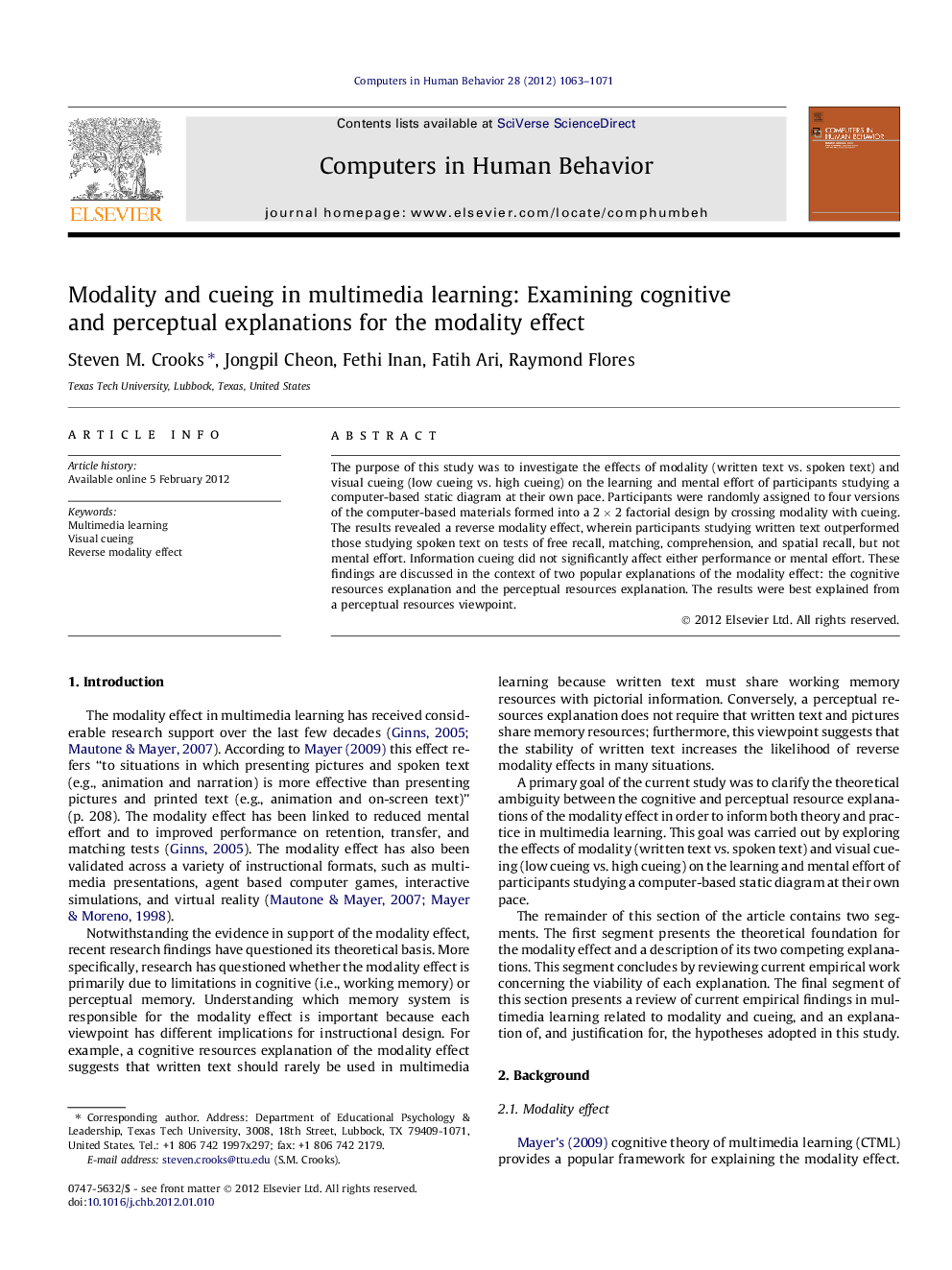| Article ID | Journal | Published Year | Pages | File Type |
|---|---|---|---|---|
| 351364 | Computers in Human Behavior | 2012 | 9 Pages |
The purpose of this study was to investigate the effects of modality (written text vs. spoken text) and visual cueing (low cueing vs. high cueing) on the learning and mental effort of participants studying a computer-based static diagram at their own pace. Participants were randomly assigned to four versions of the computer-based materials formed into a 2 × 2 factorial design by crossing modality with cueing. The results revealed a reverse modality effect, wherein participants studying written text outperformed those studying spoken text on tests of free recall, matching, comprehension, and spatial recall, but not mental effort. Information cueing did not significantly affect either performance or mental effort. These findings are discussed in the context of two popular explanations of the modality effect: the cognitive resources explanation and the perceptual resources explanation. The results were best explained from a perceptual resources viewpoint.
► We studied the effects of modality and visual cueing on learning and mental effort. ► We found a reverse modality effect, but no cueing effect, on all learning measures. ► Modality and cueing did not affect mental effort. ► Our results are best explained from a perceptual, rather than a cognitive, viewpoint.
